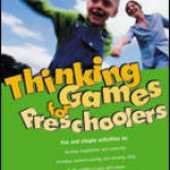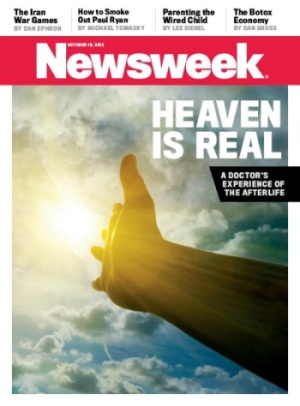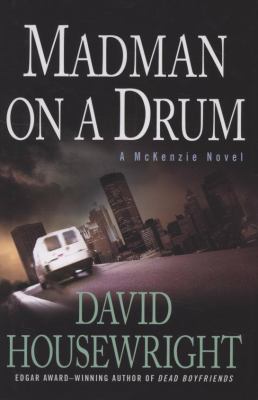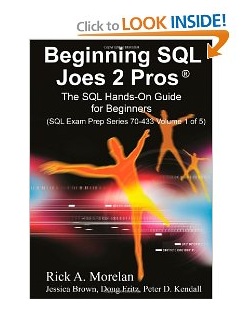Ugly and annoying
Once upon a time, my apartment complex was much bigger than it is now thanks to it being clipped to two buildings by a major highway relocation project and subsequent surface street changes. A vacant plot of land was left behind once that other building had been torn down.
A resident living on the street behind my complex used to take his rider mower and keep this plot of land trim and presentable. Then he began trimming only a part of it, leaving the rest to become overgrown with weeds, brush, and other wild plant life that falls dormant in the winter but starts anew in the spring and flourishes throughout the summer and fall. About the only thing decorative about it is the footpath worn into it on one side and the power lines that stretch above it.
I suspect it got so overgrown because the Minnesota Department of Transportation told the guy with the rider mower to stop cutting it because they are the legal owners of this plot. I wish they would keep it cut like that guy used to, because while I’ve grown used to the sight of all that wild vegetation looming outside my bedroom window, my allergies certainly hasn’t. Quite the opposite! Many a day and night, I have had to deal with frequent sneezes, itchy eyes, and clogged nostrils thanks to the pollen being pumped into the air from that hill.
An even more important annoyance is how the brush and weeds stretch almost to the curb of the street, which means you have to pull up quite a bit at the stop sign so you can see if anybody is coming from that direction when leaving. So there you have it. Something that is both ugly and annoying all at once.
Get ready for All Hallow's Read
Two years ago, Neil Gaiman wrote a blog post in which he proposed that people give away scary books for Halloween. The idea caught fire on the internet, and has been a resounding success in the last two years. You still have a few weeks to get ready for this fun new tradition!
The Fourth Estate-What a joke!
I, as a conservative, do not watch MSNBC as well as a number of other liberal media outlets. I simply don’t agree with practically anything they have to say and find it just drives up my blood pressure when I try to tune in. I’m certain, due to the number of comments made by my liberal co-workers and others that they don’t watch Fox news or other conservative stations.
My point is simple: conservatives turn to conservative outlets and liberals depend on liberal media. OK, I get it and that’s a fact.
However, the “mainstream media”—newspapers, magazines and those electronic media outlets that have been around as the source of news and reportage since the infancy of radio and television—are decidedly liberal. Their partnership though obfuscated, with the overtly liberal media tips the scales in the favor of the liberal viewpoint.
As stated, conservatives gravitate to conservative outlets and liberals to liberal outlets. OK, that’s fine. What’s not fine is that the “mainstream media” is generally the source of news and the “gospel” for independents.
With newspapers, magazines and electronic media tilting left the perceptions of the audience are affected as to what is factual and what isn’t.
My problem is this: “Mainstream media” is the Fourth Estate, charged with delivering impartial reportage. Our constitution stipulates free speech so that in part, we could have a news media that reported on political, corporate and private issues that affect the life of the public at large.
The “mainstream media” can, through subterfuge, dramatically affect what people believe and maintain their ridiculous assertion that they are unbiased. By simply not reporting on events, such as the Libyan riots, the death of American’s Ambassador and Susan Rice’s lies regarding the event as well as his snub of the President of Israel and refusal to confront Iran or North Korea regarding their nuclear ambitions, the media directs the thinking of the casual observer. The political machinations of the Obama Administration are too numerous to take the time to include.
The Fourth Estate is a joke, unfortunately and, the joke's on us.
Why I don’t Facebook friend my husband
Like most other people, I too am on Facebook. However, unlike most other married women, I am not Facebook friends with my husband. My husband thinks I am silly for refusing to be friends with him on the social media site, but he is rather okay with it all. My refusal to be Facebook friends with my husband is not due to the fact that I have something to hide. In actuality, it is because I want to leave a little bit of mystery about myself. Plus I rather enjoy my personal space.
My husband and I are closer than the average couple. We have dinner together every night, and we spend almost all of our free time together. We run and train for marathons together, and we devote a good amount of time to rehearse and perform Vietnamese opera together. We even do most of our grocery shopping alongside one another. Therefore, my husband knows just about everything there is to know about me. For that reason, I find it unnecessary for him to read my latest posting on Facebook.
Since the beginning of our marriage, my husband and I have always respected each other’s personal space and communications with friends and family. I would never answer his cell phone, and he would never answer mine. We also do not read each other’s text messages or emails. In fact, I have no clue what my husband’s chosen email address password is, and he has no idea how to get into my email account. We trust each other enough to not have to watch over one another’s personal communications. So there really is no reason for him to see everything that I post and comment on with my Facebook account.
A neurosurgeon visits Heaven - so what?
The latest Newsweek cover story is causing quite a stir: it features a hand reaching up to the sun, with the headline "HEAVEN IS REAL: A DOCTOR'S EXPERIENCE OF THE AFTERLIFE."
Once you think about it for a minute, it becomes clear that a neurosurgeon is no more credible on the topic of Heaven than anyone else. You might think "Well, a homeless guy could be having a schizophrenic episode or something." But let me assure you, neurosurgeons suffer from schizophrenia, too.
How much is too much?
How much is too much? At what point does faith and belief tip over into blind fanaticism? This question has occupied much of my time and mental energy since a trip I made to Denver a while back. I was in Denver on business and my flight requirements dictated that I stay over the weekend to get a lower rate.
I had contacted a friend and his wife who were old friends and neighbors before they moved to Denver. They invited me to stay with them over the weekend. I looked forward to the visit and when the 5:00 p.m. whistle blew on Friday, I made a beeline to their home. This was my first visit since they had moved to Denver. When the voice from the GPS had me pull into their driveway, I was taken aback by the scene in front of me. I sat in the car for a moment taking in the condition of the house and property where they lived.
Back in Albuquerque, they had lived in a nice home that was well-kept and the lawn and grounds around it was tended to regularly enough to be a credit to the attractiveness of the neighborhood. The house in front of me was very small, the siding was cracked in places it obviously needed a new roof. As I walked up the broken and cracked sidewalk, I took note of the warped and unpainted boards of the front porch.
I knocked on the door which was almost immediately opened and I greeted my friends with handshakes and hugs. After a minute, as I was shown to the bedroom where I stashed my bags, I was again surprised to see the old, wobbly furniture, worn rugs and walls in need of paint. More disturbing however, was the general cleanliness, or lack of it. The place wasn’t a disaster, it was simply nowhere near the care they gave their home in Albuquerque.
As the evening and the next several days unfolded, I learned that my friend was doing well in his job—for which he transferred to Denver. His wife had taken a job, which I thought was good on the surface of things. I couldn’t help but notice that the food available in the house was the least expensive available there wasn’t much of it.
Finally, the answer came out late in the day on Saturday. I had been listening since I arrived to a religious reference in almost every comment either of them uttered. The references were benign enough, but there were just so many of them, my “what’s wrong with this picture” radar was pinging off the scale.
Saturday afternoon, after burgers on the grill, the couple sat together and told me they had been converted shortly after their move to Denver. Searching for a church home, they visited one referred by a co-worker. After attending several weeks in a row, they began dedicating more time and money to the church. They have belonged to the church for the last six months or so and this turned out to be the very why the wife found a job. They simply couldn’t support the needs of the church on his salary alone. Her entire weekly check and a big portion of his were devoted to the church and its outreach programs, which explained their living conditions.
I attended services on Sunday—not realizing it was a daylong affair and I saw what I regarded as a brainwashed, somewhat manic congregation hard at work on any number of good causes.
I firmly believe that my friends—in the not too distant future—will have exhausted their funds and will need the same assistance that they are now spending their money to dole out. After all, they have pulled their investments and have proudly sponsored several activities at the church.
I have been dispirited since returning home and worried about what’s going on in Denver with my friends. Certainly, if a person is going to contribute money over the long term, they have to maintain enough resources to live on—in order to generate more money to contribute.
Madman on a Drum by David Housewright
I really, really like David Housewright’s whodunits focusing on St. Paul cop-turned unlicensed private eye Rushmore McKenzie. The character is a likeable mix of charm, guile and toughness seasoned with a dry wit and keen perception whose first-person narratives of his cases are so addictive Housewright makes me come back for more each time.
In this, the fifth book in a series that began with A Hard Ticket Home, big trouble strikes the family of McKenzie's lifelong friend Bobby Dunston when Bobbys daughter Victoria is kidnapped. And apparently, the kidnapper knows both Bobby and Mac from somewhere in the past. He also knows that Mac is rich after capturing a millionaire embezzler years before, and that McKenzie is the one who has to pay the million dollar ransom the kidnapper demands for Victoria’s return.
Mac antes up the ransom readily, but not before he, Bobby, and the FBI find out just who the kidnapper is. He even says goodbye to the perp by name as he spirits Victoria away upon her release. That very afternoon, however, the suspect is found dead in the very spot Mac made the trade for Victoria. And that night, the first of many attempts on Mac's life begin as if it were open season, and Mac is the game.
Housewright, a native Twin Citian, knows his town in and out, and gives this knowledge to Mac. Who explains to the reader just what, say, Block E in Minneapolis is and why it is there when Mac goes to meet an informer of his named Chopper at a club located there. It is downright cool to read something so noir-ish set in the Twin Cities, a place one normally would not associate with such fiction.
In short, Madman on a Drum is as impossible to put down as all the McKenzie novels that came before and after it.
Beginning SQL: Joes 2 Pros
If you live in the United States, at any rate, you’re probably all too familiar with weak job recovery. This might lead you to explore new employment opportunities and to learn new skills. Having technical skills can give you new options for your career, and if you are interested in developing those, you might want to consider learning Structured Query Language (SQL).
SQL is a programming language for working with databases, which are essential information repositories for businesses and many websites. Having skills in SQL can lead to a career as a database administrator, as a software or website developer or a report writer.
The Beginning SQL Joes 2 Pros book, written by Rick A. Morelan, with Jessica Brown, Doug Fritz and Peter D. Kendall, can serve as a launching pad when learning SQL. This hands-on guide is designed for beginners, and it will help you begin to prepare for a certifying exam, which will help you gain creditability.
The materials provided work with several learning styles. It has chapters of text, with companion files of videos and hands-on labs. Vary the order you review the information to match your learning style. Please note that you’ll need access to SQL server, so you may need to download and install it on your PC.
The book offers chapters on databases, giving you a firm grounding in those concepts. Of course, a number of chapters are devoted to creating queries, from basic to complex, which allow you to view information from the database. You’ll also learn to do more than view data; the book has information on maintaining data and tables, and processing transactions.
Mutiny on the Bounty, by Charles Nordhoff and James Norman Hall
First published in 1932, Charles Nordhoff and James Norman Hall's novel was a huge critical and commercial success that has seen no less than two film adaptations. The 1935 version starring Charles Laughton and Clark Gable the most famous, and the 1962 adaptation starring Marlon Brando the most infamous due to cost overruns and the unpredictable antics of its star.
The novel is narrated by the fictional Roger Byam, an admirer of the famous explorer Captain James Cook. Byam is thrilled to meet a naval lieutenant named William Bligh, who once sailed with Cook, during Bligh's visit to the Byam estate for dinner with Roger and his mother.
After dinner, Bligh offers Byam the chance of a lifetime: to join ship as a midshipman aboard a Royal Navy vessel Bligh will be commanding that is scheduled to sail for Tahiti to collect breadfruit plants there and take them to be introduced into the West Indies. Byam eagerly accepts.
Then, at the behest of family friend and philanthropist Sir Joseph Banks, who is funding the expedition, Byam is also assigned to compile during the ships stay in Tahiti a dictionary of grammar spoken by the natives who live there. A task Banks knows Byam would be well-suited for.
The big days soon arrives. Byam bids his beloved mother (his only living parent) farewell, reports to Bligh's ship, and as soon as the fickle winds allow the ship to depart, sets off to see with his own eyes the lands Cook saw, to help bring a new crop into England's Caribbean colonies, and to bring back to England knowledge of the Tahitian language.
True, the food aboard ship is less than what he is used to back at home, and the quarters are somewhat cramped, but Byam soon learns to adapt to them.
There is an even bigger catch, though, one which bodes ill-well for all aboard her: the ship is none other than His Majesty's Armed Vessel Bounty.
Byam will soon experience a lot more adventure than he'd bargained for when rebellion suddenly occurs one day out of the blue on the homeward leg of the voyage, instigated by Bligh’s second-in-command, Fletcher Christian. From there Byam will embark on an odyssey of adventure and romance that will end with him barely escaping the hangman’s noose when the Royal Navy comes in search of those who dared seize one of its ships.
The "Distant Early Warning"
The "Distant Early Warning" system was a series of Cold-War-Era radar stations in the Arctic (like the one pictured) that were designed to make sure that no funny business was coming in that direction from them Rooskies.
- Heretofore unbeknownst to me (because I have always had a somewhat vigorous distaste for said band), it is apparently also a song by the band Rush. I decline to link to it, because, as I said, I don't like Rush, and, hey, it's my blog.
But I like the name "Distant Early Warning" when it comes to seeking out baseball prospects, and I like the image of guys out on some distant frontier scanning for some kind of sign of something meaningful. Kind of real-life "ice planet of Hoth."
So, our name for when we find guys who are young for their level, but still produce at the plate, is a "Distant Early Warning Alert."
I divide them into three levels -- based on "Plausibility Index" -- but, really, the most important thing is showing up on the "DEW Alert" and then progressing into one of the other categories.
The guys who did that (showed up as DEW Alerts, and then progressed to Golden Year or Person of Interest):
- Jose Lopez at 18, 19, 20 & 21
- Shin Soo Choo at 20, 21 & 22
- Wladimir Balentien at 18,19, 20 & 21 (Golden Years at 22 & 23)
- Adam Jones at 19, 20 & 21
- Michael Saunders at 18, 20 & 21 (Golden Year at 22)
- Jesus Montero at 18 & 19 (Golden Year at 20)
- Alex Liddi at 20, 21 & 22
- Nick Franklin at 19, 20 & 21
- Our man Ji-Man Choi at 19
- Julio Morban at 17 & 20
That's a pretty good track record, considering that Jones and Choo are minor stars, and Saunders and Montero appear to be on their way to joining them. (And, as we've noted, Wlad is tearing up Japan this year.)
- And since we've declined to include Rush, we will, instead, link up to our Julio Morban "Get on the Morbanwagon" theme song!
Next category is POI + DEW.











